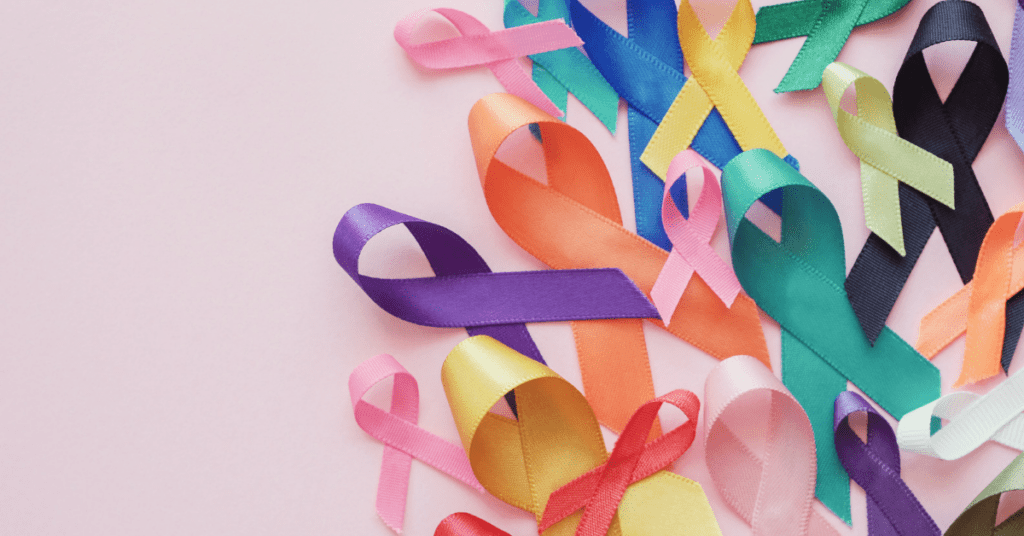When you’ve just been diagnosed, maintaining a level of normalcy during cancer might be the last thing on your mind. But this mindset can actually be a great support throughout your cancer treatment. Focusing on quality of life during your cancer journey instead of fixating on the scary what-ifs can be just the mental health boost that any patient needs.
In fact, the National Cancer Institute (NCI) reports that making an effort to keep life as normal as possible during treatment can help patients overcome the disease and foster a more positive outlook. Maintaining daily routines, such as going to work and attending activities with family and friends, can lift the patient’s spirits and provide a sense of purpose beyond beating cancer. What’s more, this positivity and sense of purpose can translate to better survival rates, making a normal daily life all the more crucial for cancer patients.
Tips for Healthy Living During Treatment
It can be tempting to let your usual routines slide during a course of treatment, especially when you’re battling side effects or exhaustion. Side effects from treatment will vary depending on your therapy plan, plus what kind and stage of cancer you have. During many treatments, it is normal to experience nausea, vomiting, and fatigue. When these symptoms occur, it is essential to take care of yourself and try your best to live as normal as possible — though this may require a few tweaks to the typical routine. For example, if your usual daily life includes some less than healthy habits, your quest to maintain normalcy may include a few lifestyle upgrades.
In particular, eating well, exercising, and other stress-relieving activities can help minimize the physical and mental side effects of cancer and subsequent treatment. If making some of these changes feels difficult or daunting, lean on your healthcare team, friends, and family to help implement new and healthy habits.
Exercise
Physical activity heightens energy levels, which makes exercise a valuable ally to cancer patients. When treatment-related fatigue kicks in, exercise may seem difficult, if not downright impossible. However, engaging in physical activity when your symptoms are less severe can provide the energy and mood boost you need. Even short walks and stretching are beneficial. As a safety precaution, the NCI advises patients to consult with their doctor and treatment team before working out during cancer treatment and let loved ones know when and where they will be exercising.
Eating Well
Good nutrition is important for everyone, but maybe even more so for cancer patients. Eating the right kinds of foods can help your body fight infection, feel better, have more energy, and be stronger overall. Talk to your doctor about enlisting a nutritionist if you need extra help. They can create a list of foods and an eating plan that will meet your unique needs.
Work
During treatment, traveling to and from work can be difficult, especially if you are nauseous or fatigued. But continuing to work can do more than help patients pay the bills — it can also help you feel more normal and provide a sense of fulfillment and accomplishment at the end of the workday. Many employers will be willing to make accommodations for your appointments, energy levels, and other health needs. If possible, talk to someone about working remotely during these times.
Emotional Support
As we’ve mentioned, your mental and emotional wellbeing are also essential to your health. If you are already in therapy, keep it up. Or, if you’ve never tried therapy before, now may be a good time to explore options. Cancer treatment can take a lot out of you, and there’s nothing wrong with recruiting a little extra support.
If going to the therapist’s office is too much, talk to them about having your sessions via Zoom. Some patients also incorporate therapy alternatives such as acupuncture, yoga, or meditation. Just be sure to always check with your healthcare team before participating in any of these alternative therapies.
Coping Strategies
Everyone copes differently, and your strategy can depend on the type of situation you are facing. Even if there are coping methods that have worked for you in the past, after receiving a cancer diagnosis you might find yourself needing more than your usual go-to’s. Having a strategy prepared can help when you are struggling to stay focused and positive.
- Give Yourself a Break: We know you have a lot on your plate. But making time every day for relaxation and enjoyment can help you minimize stress. Take time out to listen to music, take a bath, watch your favorite show, or read. Continuing to engage in work, hobbies, or quality time with family and friends can help you look past your cancer and give you a small break from anxiety.
- Embrace Your Spirituality: Some people find comfort and meaning in their faith and spiritual beliefs. Cancer can challenge these beliefs or reinforce them. If you find solace in your spirituality, then lean into it.
- Educate Yourself: Once you receive a cancer diagnosis, there is a lot of information to take in. You might experience well-meaning friends and family offering their input along with what your doctors are telling you. This can be a fast path to “information overload.” However, taking research into your own hands and at your own pace can help you feel in control, filter out the incorrect info, and cope with your diagnosis.
How you cope depends on your past experiences, personality, upbringing, and the specifics of your situation. Remember what positive coping mechanisms have worked for you in the past, but also be prepared that you might need more than your usual ways of coping when it comes to a cancer diagnosis.
It’s important to mention that some coping strategies are less helpful than others. Using drugs and alcohol to deal with and disassociate from reality may provide relief in the short term, but this kind of unhealthy coping can end up causing emotional and physical harm. It can even affect how well your cancer treatments and medicines work. If you find yourself leaning on these vices, consider asking for help from friends,family, or a licensed professional.
Set Future Goals
Thinking about and setting up future goals can give patients something to focus on other than beating cancer. These goals can be large or small, as long as they are meaningful. For example, planning an overseas trip, learning about a potential career change, or exploring college courses can be something to look forward to after beating cancer and feeling well again.
Cancer Is Not Your Defining Feature
Before you were a cancer patient, you had many other monikers: friend, partner, boss, co-worker, parent, and sibling, to name a few. Don’t let this diagnosis become your number one descriptor. You are much more than that. Although your usual quality of life may be changing and disrupted, that doesn’t mean you have to cave to your diagnosis.
Maintain Hope and Optimism
Easier said than done, we know. But after receiving your diagnosis and accepting the reality of your treatment, trying to maintain as much positivity as possible can go a long way. Studies show that patients that are optimistic about treatment and their future can have better medical outcomes. Fear and doubt are normal, but focusing on hope and positivity will make daily life more bearable.
Find Inspiration
For some people, illness can inspire them to figure out what matters most. Whether this means spending more time with friends and family, taking better care of yourself mentally and physically, contributing more to causes that you believe in, or showing more appreciation for what you have and those around you, your illness can be a vehicle for you to implement positive changes in your life that extend far beyond your diagnosis and treatment.
Aynjil Insurance
At Aynjil, we know it’s tough to maintain normalcy in the wake of a cancer diagnosis. We have been personally affected by cancer in our own lives, and have seen first-hand how difficult and scary it can all be.
Let us alleviate some of the burden associated with this life-altering diagnosis. Aynjil is a South African cancer insurance product that works in tandem with the health insurance you already have to help alleviate your financial burdens and offer assistance for your family, mental health, and lifestyle.
We have packaged our product in simple terms without any legalese or hidden loopholes. With Aynjil, it’s easy to get a quote with our simple four-minute online process. And as part of our comprehensive support, every new patient will receive our Aynjil Care Pack, providing you and your family with invaluable information to guide you on your journey to recovery.
A cancer diagnosis can be overwhelming, but you don’t have to face it alone. Visit our website today to see how we can help support your cancer battle and empower you to focus on the most important thing of all: recovery.
Marketing by Joseph Studios



